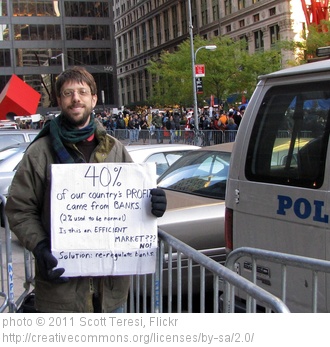 By: Jer Trihouse. The payday loan industry continues to experience attacks on their ACH processing ability. At first glance, those of us who are dependent on the automated clearing house to service our borrowers shriek with acrimony at our governments intrusion into our business. I did as well. However, after I read the full text of the Department of Justice complaint and the settlement Four Oaks FINCORP agreed to, I must wonder what these guys were thinking! Obviously, only the parties involved know the details. The Fed’s have the deepest pockets! Litigating these allegations may have been suicide. Suffice it to say, when your lending model is dependent on “getting in bed” with other “players,” you are at risk.
By: Jer Trihouse. The payday loan industry continues to experience attacks on their ACH processing ability. At first glance, those of us who are dependent on the automated clearing house to service our borrowers shriek with acrimony at our governments intrusion into our business. I did as well. However, after I read the full text of the Department of Justice complaint and the settlement Four Oaks FINCORP agreed to, I must wonder what these guys were thinking! Obviously, only the parties involved know the details. The Fed’s have the deepest pockets! Litigating these allegations may have been suicide. Suffice it to say, when your lending model is dependent on “getting in bed” with other “players,” you are at risk.
[Need a new ACH processor? Go here: ACH Processors ]
Some highlights:
- Since the inception of Four Oaks Bank’s relationship with TPPP-TX, Four Oaks Bank has permitted TPPP-TX to originate more than 9.8 million ACH debits on behalf of TPPP-TX’s merchants. In dollar value, Four Oaks Bank has permitted TPPP-TX to process more than $2.4 billion in ACH network transactions for its merchants. In return for access to the ACH network, TPPP-TX has paid Four Oaks Bank more than $850,000 in gross fees.
- As of today, approximately 97 percent of TPPP-TX’s merchants for which Four Oaks Bank permits debits to consumers’ accounts are Internet payday lenders. Annualized interest rates for Internet payday loans frequently range from 400 percent to 1,800 percent or more – far in excess of most states’ usury laws.
- Four Oaks Bank also has permitted TPPP-TX to originate ACH debit transactions on behalf of other merchant-clients engaged in allegedly illegal activity, including alleged Internet gambling entities and an alleged Ponzi fraud scheme.
- TPPP-TX’s Internet payday lender merchants operate through a series of websites. The websites are the only place where the lenders and borrowers “meet” to agree to loan terms. On these websites and in loan documents, TPPP-TX’s Internet payday lenders purport to state the total payment necessary for borrowers to satisfy a loan (which is the sum of the principal borrowed plus a stated finance charge) and the term of the loan. TPPP-TX’s fraudulent Internet payday lending merchant-clients affirmatively lead their respective borrowers to understand that their loans will be repaid by a single debit from their bank accounts on a date certain. Borrowers expect that, with that one debit on that specific date, the loan will be paid off and their obligation to the lender will terminate.
- Many of TPPP-TX’s Internet payday lenders’ actual practices, however, are not consistent with the expectations the lenders create for the borrowers. The lenders affirmatively mislead the borrowers by hiding in small print and in confusing language steps required for borrowers to avoid a loan rollover trap. Contrary to the expectations created by these lenders, the relevant TPPP-TX merchant-clients do not deduct the full amount owed (principal and interest and fees) on the loan due date so that the loan is fully satisfied and all obligations to the Internet payday lender end. Instead, these lenders manipulate repayment withdrawals for the purpose of extending the loans and racking up additional, unexpected finance charges against the borrowers.
- In some cases, TPPP-TX’s Internet payday lenders unilaterally and without notice to borrowers – and in direct contradiction to the reasonable expectations of the borrowers based upon their Internet communications – unilaterally manipulate ACH debits against borrowers’ accounts to achieve greater profits at the expense of borrowers.
- The design, intent, and effect of these fraudulent Internet payday lenders’ conduct creates a false pretext to withdraw money from borrowers’ bank accounts in amounts far exceeding the reasonable understanding and expectations of borrowers. Through this process of misleading and deceptive Internet payday lending, many of the borrowers are sucked into a vortex of debt and their bank accounts are debited until they are bled dry. Moreover, as a consequence of unanticipated loan extensions, rollovers, and unanticipated interest payments debited from their bank accounts, many of the borrowers incur further harm in the form of substantial overdraft or “insufficient funds” fees from their own banks.
- Four Oaks Bank permits TPPP-TX’s fraudulent Internet payday lending merchants access to the ACH network to credit (deposit) loan proceeds into borrowers’ bank accounts, and then to debit (withdraw) money for the repayment of the loans, with interest and fees. These fraudulent Internet payday lenders unilaterally access borrowers’ bank accounts based upon authority purportedly granted through fraudulent and misleading loan agreements. TPPP-TX’s fraudulent Internet payday lenders’ ability to control the timing and amount of debits from borrowers’ bank accounts is the key to their ability to commit fraud. Without direct, unilateral access to borrowers’ bank accounts through the ACH network, the Internet payday lenders would need borrowers to initiate each loan repayment. Borrowers that find lenders’ demands for repayment to be inconsistent with their respective understandings of their loan agreements would have an opportunity – before money is unilaterally taken from their bank accounts – to question, reject, or dispute the demand for payment.
[Need a new ACH Processor? Go here: ACH Processor ]
Learn how to open a payday loan business or improve your operations: PaydayManual.com
To have these timely Posts delivered to your inbox, sign up below. Spam is for jerks! We are not jerks!!




